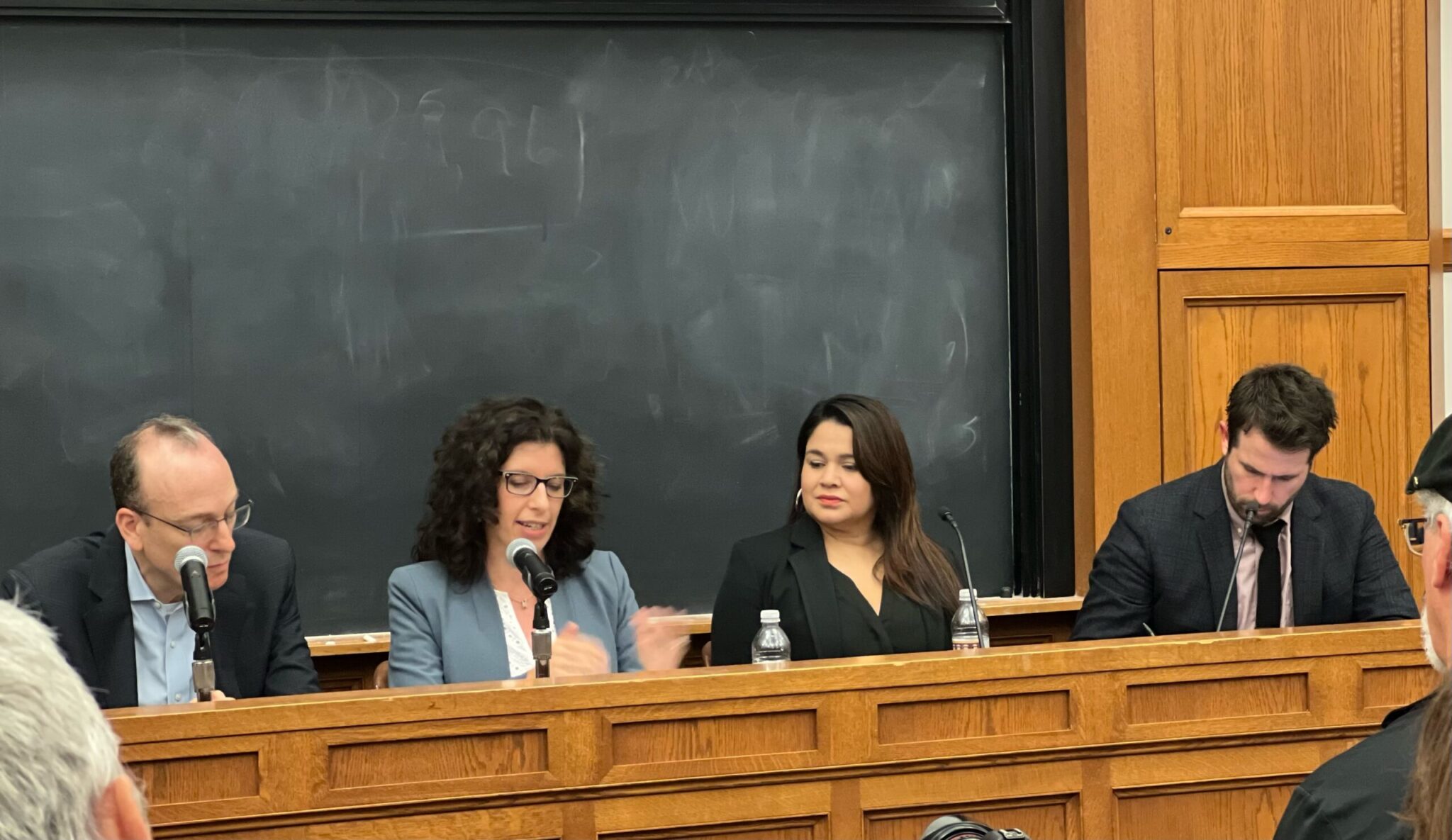Yale Law School holds panel on upcoming Second Amendment SCOTUS case
On Sept. 12, the Yale Law School's Solomon Center hosted a discussion on the upcoming Supreme Court case, United States v. Rahimi, which will evaluate the Second Amendment rights of individuals under domestic violence-related restraining orders.

Adam Walker, Contributing Photographer
Content warning: This column contains non-graphic references to domestic violence.
SHARE is available to all members of the Yale community who are dealing with sexual misconduct of any kind, including sexual assault, sexual harassment, stalking, intimate partner violence and more. Counselors are available any time, day or night, at the 24/7 hotline: (203) 432-2000.
The Yale Law School community convened on Tuesday evening to discuss upcoming Supreme Court case United States v. Rahimi, which could clarify the scope of the Second Amendment’s right to bear arms in the face of complicating factors.
The event, titled “Gun Violence, Domestic Violence, and the Supreme Court: Twin Threats before the Court in United States v. Rahimi,” was hosted by the Law School’s Solomon Center for Health and Policy. The talk was co-sponsored by several progressive and reproductive justice-oriented Law School organizations; it featured panelists who are legal and public health experts from institutions across the country, including Megan Ranney, Jesenia Pizarro, Eric Tirschwell and Michael Ulrich.
“We were so honored to host this event and bring together leading litigators and public health scholars to consider the potentially devastating impact of a Supreme Court decision that could nullify dozens of state laws that temporarily prevent domestic abusers from holding firearms,” Abbe Gluck ’96 LAW ’00, faculty director of the Solomon Center, wrote to the News. “Not only is gun violence one of the nation’s most serious public health problems, public health also offers some solutions.”
The case is expected to define parameters around the government’s constitutional authority to restrict the right to own a personal firearm for individuals under domestic violence-related restraining orders. The Supreme Court decided to take up the case at the conclusion of its 2022-2023 term, with oral arguments scheduled for Nov. 7.
Tirschwell, who is the executive director and chief litigation counsel of an organization that seeks to advance gun safety in the courts — Everytown Law — opened the talk by providing an overview of the case.
Tirschwell explained that the case began in a Texas parking lot in 2019 when Zackey Rahimi engaged in a heated argument with his then-girlfriend, who has chosen to remain anonymous in court filings. Rahimi violently assaulted his girlfriend before she was able to escape.
Rahimi persistently threatened to shoot his former girlfriend if she told anyone, prompting her to seek a domestic restraining order, according to court documents. In court, a judge concluded that Rahimi posed a significant threat to both his girlfriend and their shared child. Consequently, the judge ruled that Rahimi should not possess a firearm while the restraining order was in effect.
The court’s decision was later deemed unconstitutional by the U.S. Court of Appeals for the Fifth Circuit, as the court found that the original ruling violated Rahimi’s Constitutional rights in the Second Amendment. The case could have far-reaching effects on the safety of domestic violence victims across the nation, and it has raised questions surrounding the strength of the Second Amendment.
“Forty-eight states across the country have similar laws that either require or allow judges to order domestic abusers to be disarmed in the context of civil protective order cases,” Tirschwell said, highlighting the significance of the Supreme Court’s upcoming decision.
Tirschwell also claimed that the Fifth Circuit’s argument against the ban was originalist in nature. One of the Fifth Circuit’s key reasons for overturning the lower court’s decision was its belief that domestic violence did not exist as a concept when the Constitution was initially drafted.
Consequently, the ruling argued that the law in question did not align with the Framers’ original intent regarding the Second Amendment.
“We think that the Fifth Circuit got this dead wrong,” Tirschwell said.
Tirschwell said that he remains optimistic the Supreme Court will focus their decision on if there is any historical precedent on disarming people who are deemed to be dangerous to society.
On the panel, Megan Ranney, the newly appointed dean of the School of Public Health, addressed the public safety concerns arising from the case, emphasizing that while gun violence affects everyone, it disproportionately affects children, pregnant women and women of color.
“It is very much an epidemic,” she said. “We are seeing an increasing number of both firearm deaths and firearm injuries across the United States. Firearm injury has now become the leading cause of death for children in the United States.”
Jesenia Pizarro, a professor at Arizona State University’s School of Criminology and Criminal Justice, highlighted the criminal justice perspective surrounding the case. Pizarro specifically mentioned that allowing firearms to remain in the hands of abusers puts law enforcement and public servants in “great danger.”
Michael Ulrich, an assistant professor of Health Law, Ethics and Human Rights at Boston University, discussed the limitations of the Second Amendment during his portion of the talk.
“There is a bigger question,” he said. “To what extent is the Supreme Court willing to continue to factor in not only the constitutional right [to bear arms] but the government’s justification for limiting that right?”
Yale Law School is located at 127 Wall St.







